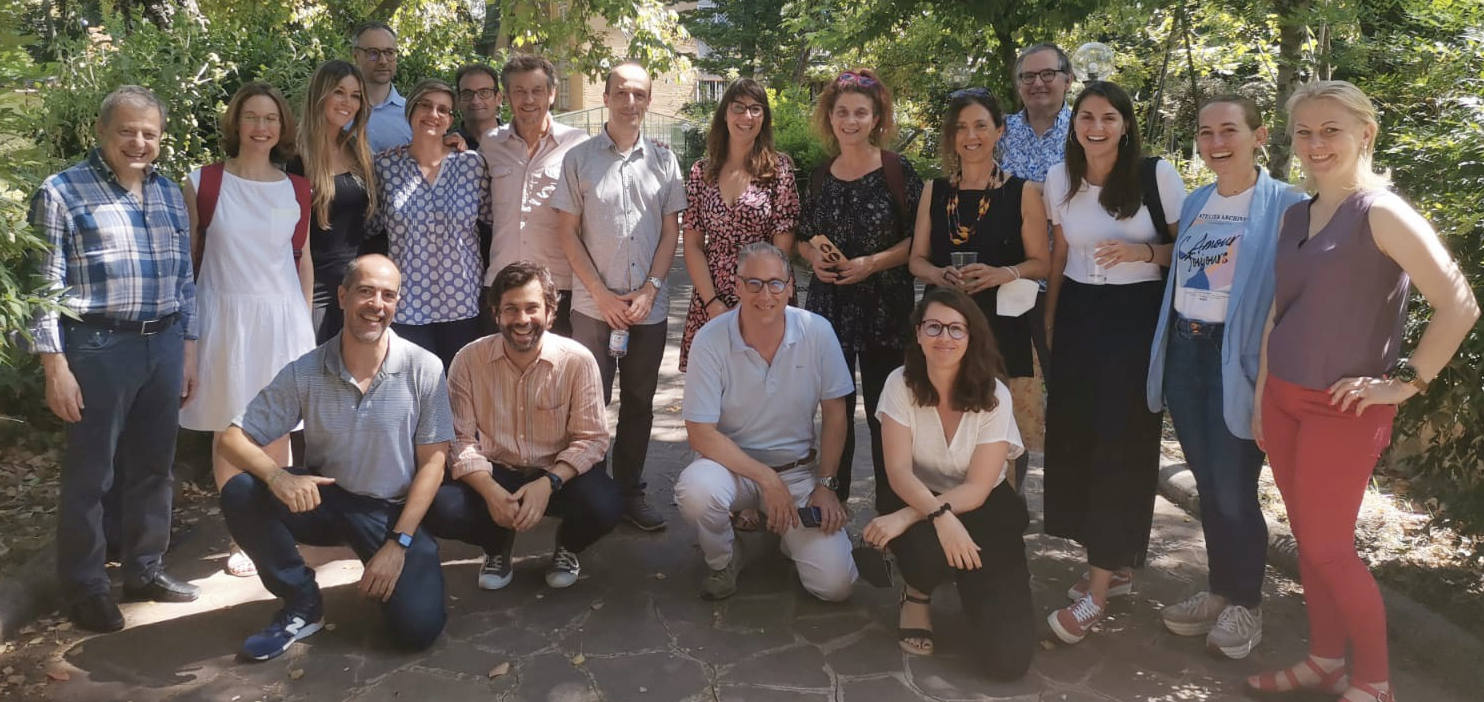CitieS-Health Presents its Final Results
This EU-funded citizen science project has developed five pilot studies on environmental issues in different European cities
01.09.2022
The EU-funded CitieS-Health project, led by ISGlobal, came to an end with a final meeting held in Rome (Italy) in June 2022. CitieS-Health aimed to put the citizens’ concerns at the heart of research into public health and the urban environment through the development of five pilot projects about environmental issues: air pollution due to traffic in Barcelona (Spain), noise in Ljubljana (Slovenia), pollution due to industrial activity in Lucca (Italy), physical activity and urbanism in Kaunas and wood burning in Amsterdam (Netherlands).
Citizens in the five locations were involved in all the phases of research, including deciding the research questions, designing the epidemiological study, analysing and interpreting the results, disseminating the conclusions and evaluating the project. In sum, citizens and scientists co-created the project. CitieS-Health documented the co-creation activities implemented, so that other citizen science projects can be inspired by them and replicate them. Some of these activities can be found in a publication or in the project’s website. The project also made contributions on the new ethical challenges posed by citizen science.
The final co-created epidemiological studies were able to reach relevant conclusions, some of which have already been published in scientific journals, while others are still preliminary.
The Barcelona pilot showed that, on days with high air pollution levels, participants had reduced attention (lower cognitive throughput and higher response time to cognitive tests) and reported higher levels of stress.
The Ljubljana pilot revealed that both the well-being and cognitive performance of individuals are primarily affected by their sleep quality, current activity and the micro-environment, while the response to the acoustic environment depends mostly on their subjective perception.
The Lucca pilot found an increased risk of having chronic kidney disease in the population living in the Serchio Valley, which was associated with working in or living close to non-ferrous metallurgical industries.
The Kaunas pilot provided evidence that the social environment and the quality of the built environment had a joint effect on disparities in the risk of hypertension. In particular, low physical activity and poor possibilities to reach green spaces and relaxation areas by walking were associated with hypertension and obesity.
Finally, the Amsterdam pilot found that exposure to woodsmoke at a communal level was associated with shortness of breath and extra use of medication for respiratory complaints.
The Citizen Science Toolkit
The project also developed the CitieS-Health Citizen Science Toolkit , managed by Ideas for Change, one of the partners of the project. It provides a customised, open and interactive collection of adaptable instruments to empower anybody to engage communities to solve issues of common concerns. The tools are meant to guide people from crowdsourcing, exploring and defining environmental and health issues that affect their communities, until implementing bottom-up actions to enable change. This Toolkit provides specific and adaptable solutions for identifying a common problem, designing a citizens-driven research study, and proactively collecting data to provide evidence that informs actions. The CitieS-Health Toolkit can be useful in designing a customised journey for participatory research studies and interventions on environmental epidemiology in the future.
Final event of the project
On June 14th CitieS-Health project led an open event titled Shaping the Future of Citizen Science linking Environment and Health , which took place at Sapienza University of Rome. This was an European workshop to present the results of the project, with an emphasis on informing the community and in reflecting on policy implications. Citizens participated in the event by presenting the results of their local projects and discussing their experience. The mayor of Barga, who has been involved in the Lucca pilot, participated in the final discussion via videoconference. Apart from scientists and citizens from the different pilots, the program included talks by external speakers, such as Janneke Elberse, Research Scientist on Citizen Science and Senior Advisor on Safety, Perception and Behaviour at the Dutch National Institute for Public Health and the Environment (RIVM); Ângela Guimarães Pereira, Leader of the European Commission Competence Centre on Participatory and Deliberative Democracy (CC-DEMOS), and Anne Stauffer, Deputy Director, Strategic Lead, Health and Environment Alliance (HEAL).
Some of the conclusions of the discussion included the fact that citizen science projects are able to produce new scientific results; that the benefits of citizen science outweigh the costs; the difficulty to maintain long-term funding for successful citizens science approaches; how to manage the expectations of citizens participating in citizen science projects; and the fact that citizen science should be introduced in university degrees curricula.



